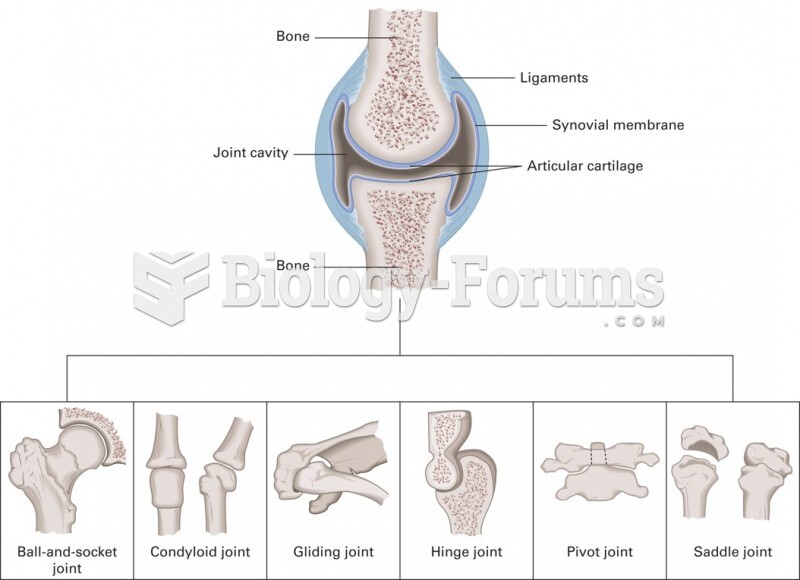|
|
|
Hip fractures are the most serious consequences of osteoporosis. The incidence of hip fractures increases with each decade among patients in their 60s to patients in their 90s for both women and men of all populations. Men and women older than 80 years of age show the highest incidence of hip fractures.
Most strokes are caused when blood clots move to a blood vessel in the brain and block blood flow to that area. Thrombolytic therapy can be used to dissolve the clot quickly. If given within 3 hours of the first stroke symptoms, this therapy can help limit stroke damage and disability.
Approximately 500,000 babies are born each year in the United States to teenage mothers.
Bacteria have flourished on the earth for over three billion years. They were the first life forms on the planet.
The first oral chemotherapy drug for colon cancer was approved by FDA in 2001.







